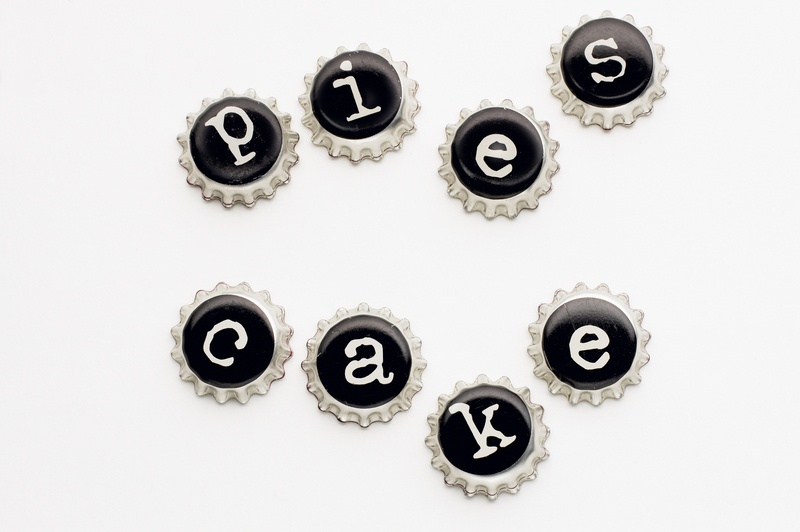Crafting a Child-Friendly Recycling Education: Building Future Earth Heroes
Today's children are tomorrow's environmental stewards. By introducing recycling concepts early, we shape mindful citizens who can make wise choices for our planet's health. This piece dives deep into crafting a child-friendly recycling education program--one that's engaging, inclusive, and effective.

Why Teach Recycling to Children?
Recycling is a cornerstone of sustainable living. Yet, the journey towards becoming environmentally responsible shouldn't start in adulthood. Introducing recycling education for kids helps cultivate:
- Early Habit Formation: Children who learn to recycle early are more likely to keep up the habit as adults.
- Civic Responsibility: A sense of duty and pride in safeguarding the community and the planet.
- Long-Term Impact: Each child educated in recycling can influence friends, family, and even generations to come.
Core Principles of Child-Friendly Recycling Education
Designing effective recycling lessons for kids means considering their age, interests, and environment. The key pillars should include:
- Simplicity: Use clear, simple language. Avoid jargon and make concepts tangible.
- Fun & Interactivity: Integrate games, stories, and hands-on activities.
- Relevance: Relate lessons to children's everyday life and home environment.
- Visual Engagement: Use colorful visuals, charts, and demonstrations to hold attention.
- Repetition: Reinforce key messages through repetition and regular activities.
The Importance of Experiential Learning
Learning by doing embeds knowledge far deeper than passive listening. Through hands-on activities such as sorting games or upcycling crafts, children learn the recycling process step by step. This dynamic approach ensures that recycling is not just understood but also internalized as a daily practice.
Steps for Crafting a Recycling Education Program for Children
1. Assess Your Audience
First, identify the age group and backgrounds of the children. Tailor content for preschoolers differently than for preteens. For example, interactive games work wonders with young children, while older students may benefit from project-based learning or field trips.
2. Set Clear Learning Objectives
- Understand what recycling is and why it matters.
- Recognize common recyclable and non-recyclable materials.
- Develop the ability to sort waste correctly.
- Appreciate the impact of recycling on the environment.
3. Design Engaging Activities
Capturing kids' attention is crucial. Consider these activities for a child-friendly recycling classroom:
- Sorting Relay: Use bins in different colors. Children race to sort paper, plastic, and metal correctly.
- Upcycling Art Projects: Have children use discarded materials to create art, demonstrating how waste can have a new life.
- Story Time: Read books or tell stories about recycling champions and creative ways to reuse household items.
- Field Trips: Visit recycling centers or invite guest speakers involved in waste management.
4. Utilize Visual Aids and Multimedia
Vivid posters, animated videos, and illustrated guides bring recycling lessons for children alive. For non-readers, use icons or cartoons to represent different materials. Create sticker charts for tracking personal recycling efforts.
5. Involve the Community and Parents
Home-based recycling education complements classroom learning. Encourage parents to set up recycling stations at home and practice proper sorting. Community clean-up events with families can further reinforce learning in fun, collaborative ways.
Integrating Recycling Education into the School Curriculum
Cross-Disciplinary Learning
Recycling can fit seamlessly into science, social studies, art, and language arts. In science, students can learn about the lifecycle of materials. Art classes can utilize scrap materials for creations. In language arts, students write essays or stories about environmental heroes or recycling adventures.
Using Technology to Amplify Learning
Digital games, interactive quizzes, and simulation apps offer a high-tech twist to recycling lessons for kids. Many online platforms provide age-appropriate resources, lesson plans, and animated demonstrations that make recycling rules engaging and memorable.
Key Topics to Cover in Child-Oriented Recycling Education
- What Is Recycling? An age-appropriate explanation of recycling and its importance.
- Types of Recyclable Materials: Introduce materials such as paper, plastic, metal, glass, and e-waste through fun examples.
- The Recycling Process: A simple breakdown from sorting at home to reusing materials in products.
- Reduce, Reuse, Recycle: Teach children the three R's, emphasizing why reducing and reusing matter as much as recycling.
- Creative Upcycling: Inspire kids to invent new uses for old items.
- Local Recycling Rules: Include community-specific dos and don'ts to make the education practical.
Essential Elements for Effective Child-Friendly Recycling Programs
- Accessibility: Educational materials should be easy to access, with tactile displays for younger learners and digital resources for older children.
- Inclusivity: Include stories and examples from a range of cultures and communities, showing that everyone can contribute to a healthier planet.
- Celebration and Rewards: Recognize progress with certificates, stickers, or class parties to keep motivation high.
- Consistent Reinforcement: Incorporate recycling reminders in daily routines, like morning announcements or a "Green Monitor" of the day.
Common Challenges and Solutions in Kids Recycling Education
Challenge: Short Attention Spans
Solution: Use frequent, lively activities that break learning into small, digestible segments. Alternate between games, discussions, and arts or crafts.
Challenge: Conflicting Recycling Rules
Solution: Teach the importance of checking local guidelines. Provide take-home materials that list the rules specific to your district or town.
Challenge: Parental Involvement
Solution: Engage parents with simple guides and regular newsletters. Invite families to school recycling events to witness the impact firsthand.
Challenge: Access to Supplies
Solution: Partner with local organizations for material donations. Use everyday objects, like cereal boxes and cans, for sorting or craft activities.
Measuring the Success of a Child-Friendly Recycling Program
- Observation: Are children independently sorting waste at school? Are they reusing materials for crafts?
- Feedback: Regularly seek feedback from students, parents, and teachers about the activities and their effectiveness.
- Visual Progress: Use recycling charts and group goals to monitor collective achievements.
- Community Impact: Track increases in recyclable materials collected through school and local drives.
Case Studies: Successful Child Recycling Programs Worldwide
1. The Eco-Schools Program (Global)
This global initiative empowers students to lead campaigns on recycling and waste reduction. Interactive lessons and school-wide projects create a culture of environmental stewardship.
2. Recycle City (United States)
The Environmental Protection Agency's "Recycle City" offers an interactive online game where children virtually manage city recycling. It makes learning fun, practical, and easily accessible.
3. Plastic Bank's School Outreach (Philippines & Beyond)
By integrating lessons on ocean plastics and rewarding kids for collecting plastic waste, Plastic Bank's program teaches youngsters that small actions add up to big environmental impacts.
Fun Activities to Reinforce Kids' Recycling Education
- Recycling Jeopardy: Host classroom competitions based on recycling facts and processes.
- Trash-to-Treasure Fashion Show: Challenge students to create costumes from recycled items.
- Recycling Detective: Give kids "missions" to spot items that should be recycled around the school or home.
- Eco Hero Badges: Let children earn badges for recycling at home, helping organize a clean-up, or inventing new uses for old objects.
Tips for Parents: Reinforcing Child Recycling Habits at Home
- Set Up Visible Recycling Bins: Label them with pictures for easy sorting.
- Lead by Example: Let children see you recycling consistently.
- Read Together: Share children's books focused on recycling themes.
- DIY Projects: Encourage creative upcycling of everyday items.
- Join Community Clean-Ups: Make recycling a family affair by participating in local or school events.
Resources for Crafting a Child-Oriented Recycling Curriculum
- EPA's Recycle City: Visit Recycle City for fun interactive lessons
- National Geographic Kids: Discover recycling games and facts
- Earth Rangers: Environmental education projects for classes
- Recycling Council of Ontario Youth Resources: Printable guides and youth-focused activities.

Final Thoughts: Growing a Greener Generation
Crafting a child-friendly recycling education goes far beyond a few classroom lessons or home clean-up days. It's about sowing seeds of responsibility, curiosity, and hope in young minds. By making recycling accessible, engaging, and meaningful for children, we inspire lifelong habits that shape a more sustainable and healthy world.
As educators, parents, and community leaders, our collective goal is clear: empower the youngest among us to become informed, passionate guardians of our planet. And it starts with one lesson, one game, and one recycled item at a time.
Let's raise the next generation of Earth heroes--one recycling bin at a time!
Frequently Asked Questions: Child Recycling Education
- What is the best way to teach recycling to young children?
Use simple words, hands-on activities, and visible examples to introduce the concept of recycling for children. Sorting games, crafts, and story time make recycling lessons relatable and enjoyable. - How can I make recycling fun for kids?
Turn recycling into a game or challenge. Offer badges, certificates, or reward charts for consistent efforts. Invite friendly competitions or collaborative projects that involve creativity and teamwork. - What are some recommended resources for a kids recycling curriculum?
Websites such as EPA's Recycle City, National Geographic Kids, and Earth Rangers offer age-appropriate, interactive recycling education materials for young learners.